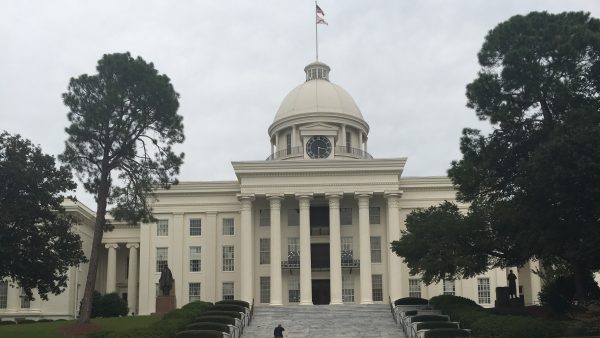Alabama could use nitrogen hypoxia for executions in death sentences. What is it?
Alabama is readying an untried method of execution to carry out its death sentences – nitrogen hypoxia.
The state approved the method in 2018, but it has not yet been used or tested.
The man awaiting a Sep. 22 execution, Alan Eugene Miller, was convicted of killing three men in a workplace shooting in 1999. He said he opted for nitrogen hypoxia instead of lethal injection due to a fear of needles, but corrections officers lost his paperwork.
While the Alabama attorney general’s office found no evidence of that, Miller could receive death by nitrogen hypoxia if a judge blocks the use of lethal injection.
What is nitrogen hypoxia?
Hypoxia is when there is not a sufficient amount of oxygen in the tissues for the body to perform its regular functions. It is different from hypoxemia, which occurs when there is low oxygen in the blood.
Nitrogen hypoxia is a form of inert gas asphyxiation. Nitrogen is safe to breathe – it makes up 78% of what we inhale – but only when mixed with suitable amounts of oxygen.
Inert gas asphyxiation uses gasses that are not typically poisonous, such as nitrogen, methane or helium, as a diluting agent for atmospheric gasses. This then reduces oxygen concentration to fatally low amounts, according to the U.S. Chemical Safety and Hazard Investigation Board.
Once oxygen levels fall below 16%, breathing becomes difficult. At 4% to 6%, a person can enter a coma in as little as 40 seconds.
There are concerns about the method
Oklahoma and Mississippi are the two other states that have authorized the method. Russell Bucklew, a man incarcerated in Missouri tried to get approved for nitrogen hypoxia, but was denied in a lawsuit that went to the U.S. Supreme Court.
Bucklew was initially scheduled for execution in 2014, but sued the director of the Missouri Department of Corrections asking for the use of nitrogen hypoxia instead of lethal injection due to a medical condition he had.
In the opinion of the Court, Justice Neil Gorsuch denied the request, saying that nitrogen hypoxia had been untested and Missouri could not properly prepare it.
Bucklew’s proposal should have included how the nitrogen gas should be administered, in what amounts, how long it would take to work and how to keep the execution team safe, he said.
The Court also ruled there was no evidence to support Bucklew’s claim that hypoxia would be less painful. He was executed in 2019 by lethal injection.
Copyright 2022 NPR. To see more, visit https://www.npr.org.9(MDA2ODEyMDA3MDEyOTUxNTAzNTI4NWJlNw004))
The 2026 Alabama legislative session begins Tuesday
State lawmakers will return to Montgomery Tuesday to kick off the 2026 legislative session. It's the final session for Gov. Kay Ivey. It also comes against the backdrop of statewide elections this fall. For a look ahead to what to expect this session we turn to Todd Stacy, host of Capital Journal on Alabama Public Television.
Who are the figure skaters representing Team USA? Key names and backstories to know
Sixteen U.S. figure skaters are competing in all four Olympic disciplines: men's, women's, pairs and ice dance. The team includes a mix of seasoned vets, world champions and rising stars.
How IVF has led to a record number of single moms in their 40s
Who gets to be a parent has been reshaped by IVF: Single women in their 40s are increasingly opting to become moms.
Exercise is as effective as medication in treating depression, study finds
New research shows exercise is as effective as medication at reducing symptoms of depression. And you don't need to run a marathon to see benefits. So how much is enough?
Marrying for health insurance? The ACA cost crisis forces some drastic choices
While Congress debates bringing back Affordable Care Act subsidies , many Americans have already made life-altering decisions to afford health care.
Celebrities wear pins protesting ICE at the Golden Globes
Some celebrities donned anti-ICE pins at the Golden Globes on Sunday in tribute to Renee Good, who was shot and killed by an Immigration and Customs Enforcement officer last week in Minneapolis.







